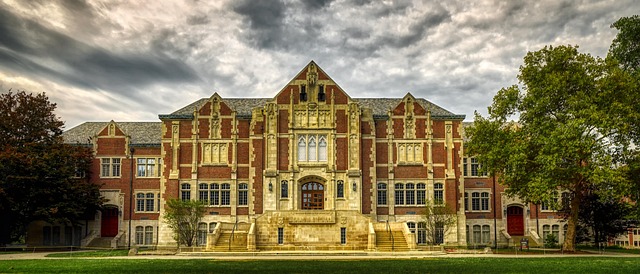
Antisemitism at Harvard
Harvard University, an institution synonymous with excellence, has recently found itself embroiled in a controversy that many might say is as old as academia itself: antisemitism. With a report stretching over 300 pages, the university has attempted to tackle a deeply entrenched issue that has sparked heated debates and protests on campus. But what does this all mean for the students, faculty, and the broader academic community? Let’s break it down.
The Report: A Long-Awaited Analysis
This extensive report, released after significant pressure, details the rise of antisemitism on campus, highlighting that this is not a new phenomenon but rather a long-standing issue that has been festering. The document outlines various incidents and attitudes that contribute to an environment where antisemitism can thrive.
What’s at Stake?
For many, the implications of the report are profound. The university's reputation is on the line, and with over $2.2 billion in federal research grants frozen, the stakes couldn’t be higher. Harvard has even taken the drastic step of suing for the release of these funds, which puts the institution in a bit of a pickle. It’s like being grounded while trying to convince your parents you’re responsible enough to go to that concert.
Faculty Ideology: A Complicated Landscape
One of the more contentious points raised in the report is the ideological leanings of some faculty members. Many have been accused of harboring anti-Western and anti-Israel sentiments, leading to a campus culture that some argue can be hostile to Jewish students. Imagine walking into a classroom where the syllabus feels more like a political manifesto than a guide to understanding the subject matter. It’s no wonder students are feeling the heat!
Campus Response: Protests and Activism
In response to the report and the ongoing situation, student activists have taken to the streets, rallying for change. For instance, Violet Barron, a Harvard junior, has been vocal about the need for the university to address these issues head-on. Protests have become a regular occurrence, showcasing the passion and urgency many students feel regarding their campus climate. It’s like a never-ending episode of a reality show, but instead of roses, there are placards and passionate speeches.
Looking Ahead
As Harvard navigates these murky waters, the question remains: what solutions will emerge from this report? The university has a long road ahead, and it will require a concerted effort from administration, faculty, and students alike to foster an environment where all voices can be heard without fear of discrimination. In the end, it’s about creating a campus culture that embraces diversity rather than stifles it.
Conclusion
Antisemitism at Harvard is not just a headline; it’s a complex issue that reflects broader societal challenges. As the university grapples with its findings and the implications for its community, one can only hope that it leads to meaningful change. After all, if Harvard can’t get it right, what hope do the rest of us have? 🤔

















 Natori Bras: A Blend of Comfort and Style
Natori Bras: A Blend of Comfort and Style 
 Health
Health  Fitness
Fitness  Lifestyle
Lifestyle  Tech
Tech  Travel
Travel  Food
Food  Education
Education  Parenting
Parenting  Career & Work
Career & Work  Hobbies
Hobbies  Wellness
Wellness  Beauty
Beauty  Cars
Cars  Art
Art  Science
Science  Culture
Culture  Books
Books  Music
Music  Movies
Movies  Gaming
Gaming  Sports
Sports  Nature
Nature  Home & Garden
Home & Garden  Business & Finance
Business & Finance  Relationships
Relationships  Pets
Pets  Shopping
Shopping  Mindset & Inspiration
Mindset & Inspiration  Environment
Environment  Gadgets
Gadgets  Politics
Politics 